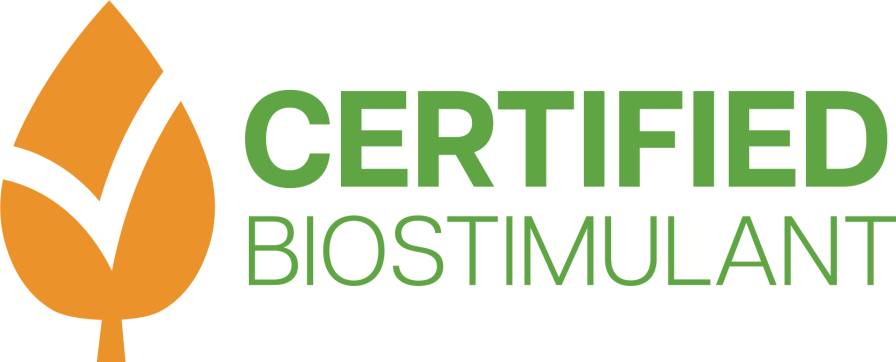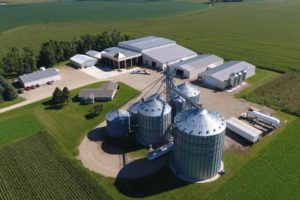Asmus Farm Supply Talks Dicamba and COVID-19
CropLife caught up with Amy Asmus, owner and agronomist, and Bil Schrader, CCA, lead seed agronomist and department head of Asmus Farm Supply Inc. of Rake, IA, during the last week of March. We wanted to get their take on the lessons learned on dicamba-resistant cropping systems and applications as the 2020 season kicks off. Asmus also shared how the coronavirus pandemic is impacting the company’s approach to doing business.
From a bird’s eye view, how is your business approaching dicamba for the 2020 season?
Asmus: We are approaching dicamba in 2020 just like we have in the past years. Dicamba is a useful tool in our plans to control tough weeds in our growers’ fields. Like all tools, we have to make sure we are using the right tool(s) for the job. We see our role as helping make sure growers know how to use that tool correctly and according to label directions. That includes making sure our grower applicators have the correct applicator license; complete the required trainings; use proper setbacks; have access to the approved sprayer tips; use only approved tank-mix partners; follow resistance best management practices; and use dicamba in an IPM-based plan. It is important to us and our growers that everyone stewards the tools we have so they make on-target applications and not end up where they are not supposed to be.
What lessons have you learned in the past seasons that brought you to where your business is now?
Asmus: The vast majority of our customer base has the equipment, personnel, and time to self-apply their pest programs. Their success is our success, so we take pride in making sure our growers have the knowledge needed to safely and accurately apply dicamba. At Asmus Farm Supply, we do offer the option for operations to purchase inputs through an online platform – but we do not sell those products, including dicamba, as cash and carry without follow-up or service. E-commerce purchases are followed up by an agronomist who talks through product information and label requirements with the customer. In a time where our food production practices are judged in a court of public opinion and the whole is judged by the carelessness of a few, we take our job as stewards and educators very seriously, as do our farmers and applicators. Bil Schrader, our lead seed agronomist and department head, has also commented that everyone who has evaluated dicamba use over the last few years has adapted to mitigate those risks.
Has the COVID-19 pandemic at all shifted how your retail operation is preparing for the year in terms of soybean planting, herbicide application, and any other agronomic decisions regarding dicamba? What have you heard from customers on this issue?
Asmus: The short answer is no. Dicamba decisions and COVID-19 are two unrelated decisions. But the longer answer is this: At Asmus Farm Supply, we are taking COVID-19 very seriously. We are doing everything we can based on CDC and WHO recommendations to keep our staff and growers safe, but with the nature of production, we have to get our crops in the fields and all our pest management plans must be executed in a timely fashion. If growers are delayed either by issues related to COVID-19 or by weather or other unforeseen delays, then we will re-evaluate the pest management plans we have in place. With all our pest management plans, we have to think about ‘what if’ and have a plan B. For example, temperature and wind conditions at the time of application play a huge role in the successful placement of dicamba. If there is a delay of application for any reason and the temperature warms up or the winds are too strong or nonexistent, we will consult with growers as to an alternative weed control system. But I want to emphasize that at this time, we are not anticipating any such delays.
Are inventories and pricing an issue, given the impact on supply chains? Or do you already have all that you need for the season?
Asmus: We don’t foresee any supply issues for the 2020 season. We are well-stocked in house and work with great wholesale partners. The issue we cannot predict is if a location gets shut down due to illness-related situations. If that happens, we will work to still get products out to where they need to be through one of our other locations. Having said that for 2020, it is yet to be seen how this world turmoil will affect supplies in upcoming years. We trust our partners in industry will do all they can to provide what the supply chain needs when they need it. What we cannot allow to happen is panic buying by growers or retailers, which would result in a disruption in the way the supply chain is measured and inventories are controlled for the next few seasons. We also have to recognize the economic pressure that would be placed on everyone if inputs are not purchased in the growing season that they are intended to be used.
What are your expectations this year on dicamba acreage? Are you seeing greater success given the increased education and strengthened label?
Schrader: Our acreage of dicamba-traited soybeans will remain about the same as last year, but I feel that more of the soybeans will actually be treated with an approved dicamba product. However, I also think that we are at the top of the curve with dicamba use in our area with other soybean weed management systems that are/will be in the market. That said, I agree with the Minnesota and Illinois restrictions on the dicamba label and encourage the EPA to look seriously at those recommendations for use in the Midwest on soybeans.
Asmus: I want to remind everyone that there are no silver bullets, only tools in our toolbox. We need to steward all tools so we have a variety of effective options and pave the way for more tools to be approved in the future. It is our plan to effectively manage weeds for years to come and we cannot do that by jumping onto the latest technology, burning it out and moving onto the next. We have always tried to recommend the dicamba system be used in a safe and effective manner. The increase in education and strengthened label just reinforced the way it should be applied and is not much of a change to those who are doing their best to apply dicamba correctly.
Have the positives outweighed the negatives in your experience with dicamba over the previous three seasons, and what direction do you think we’re headed as an industry on this topic?
Asmus: Dicamba has its positives. Those are not always highlighted in the shadow of the negative stories that are so often reported in the media.
Schrader: It is effective on giant ragweed in our area. It is a good tank-mix partner for use on waterhemp as long as it is layered with a residual product to battle the long window of emergence we see with that weed. In addition, some of the negatives are diminished in Iowa because of the high number of soybeans with the trait that are now available in the market. Just because a grower buys the dicamba soybeans, doesn’t mean all plantings are followed by a planned dicamba-based program. Growers are led to this system because seed companies have made the decision to produce a large number of those traits into their portfolio and that availability of seed drives producers to purchase that trait even if they don’t plan on using it.
The bonus that comes with this is that there is insurance against damage from dicamba off-target movement. Dicamba traits will have a good run this season, but due to interest in the E3 system, and the isoxaflutole soybean system that is just emerging in this market segment, dicamba’s market share will start to erode in years to come. The industry continues to produce systems (traited seed and related chemistry), and we need to encourage new approaches for weed control to be brought into the market. We cannot allow any issues that we have had with the dicamba system to throttle back any new tools.








